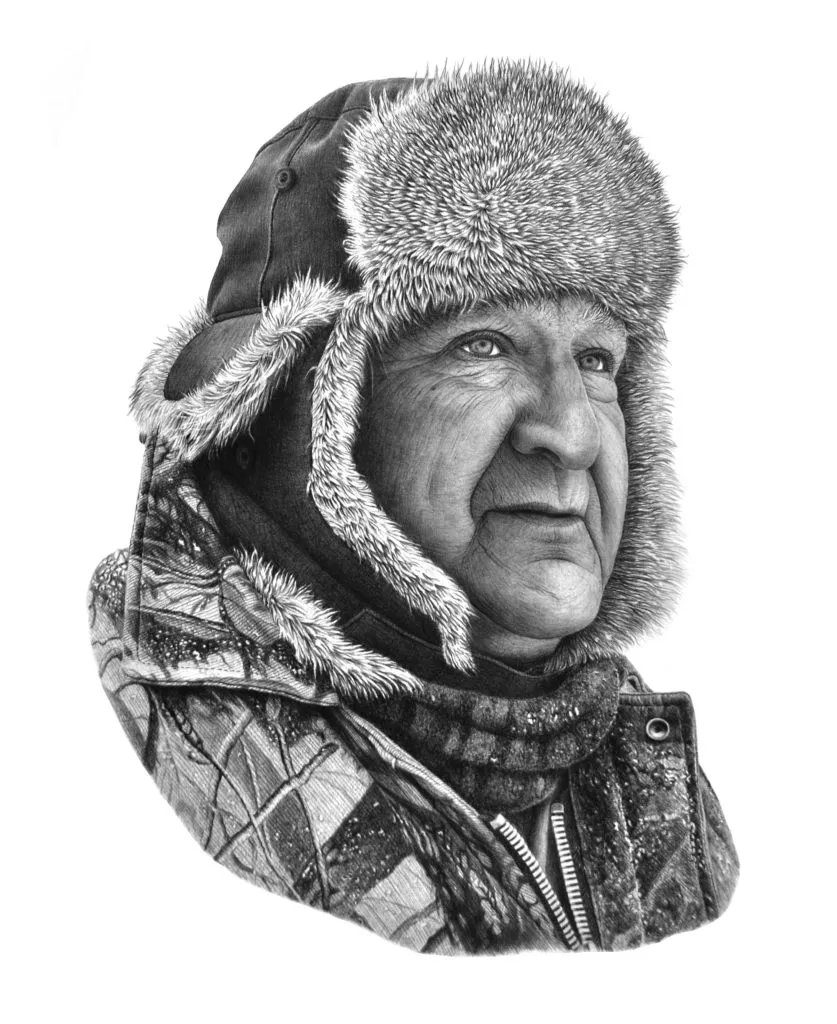 The Grand Rapids Dam was built while Gerald was just a child, but he was old enough to remember the drastic transformation the project had on his family, his community, and his well-being. Construction began when Gerald was just five years old, providing a strong recollection of before and after the dam.
The Grand Rapids Dam was built while Gerald was just a child, but he was old enough to remember the drastic transformation the project had on his family, his community, and his well-being. Construction began when Gerald was just five years old, providing a strong recollection of before and after the dam.
Before the dam Gerald’s life was peaceful. He spoke Cree, along with 90% of his community. He remembers a traditional life of fishing and trapping, where everyone knew everyone in the community.
Highway 6 reached Grand Rapids when Gerald was five years old and signalled the start of construction on the Grand Rapids dam. Thousands of migrant workers flowed into the community for work, bringing alcohol and chaos into the community. Grand Rapids was the Fort McMurray of the time, with so much ‘development’ and work. There were probably 3,000 to 4,000 workers, but there were also those who arrived and couldn’t get work. The unemployed did not always leave the community however, instead up to 1,000 men lived in the bush, in tents, just a few yards away sometimes from Gerald’s home.
When Gerald started school with the other kids in his community, they spent the first half of the year learning English and were punished for speaking Cree. The community began to lose its language quickly. How Gerald’s family lived off the land changed too. Hunting and fishing licenses made their traditional lifestyle difficult to maintain.
After a couple years of construction, the flood of migrant workers had taken its toll on the community. Gerald knew sooner than he should what a peeper, flasher, and pervert was. The community lived in fear. Even during the day, meeting at the junction on Saturdays at 1:30 in the afternoon, the children would need an adult escort to take them down the road to the movies. At other times, Gerald and his siblings wouldn’t be allowed to leave the yard because of the fear of sexual predators in the community.
The Grand Rapids dam also took an economic and environmental toll on the community. It eradicated the beautiful rapids that gave the town its name. The pickerel fishery never fully recovered. In the past, during the fishing season, there would be up to 1,000 people living on Horse Island. Now there is no one.
Gerald left Grand Rapids for residential school in Cranberry Portage at the age of fifteen. Leaving behind the instability of the now hydro-dominated community, Gerald went on to have four of his best years, enjoying regular meals and making life-long friends.
Gerald moved back to Grand Rapids and still calls it home. He might be one of the dam’s closest neighbours. And yet, despite the fact that he could practically run an extension cord and plug into the generating station directly (in theory), he lives everyday with an impending cut-off notice from Manitoba Hydro, along with most people in the community. “This is a tough reality, especially with the knowledge that Manitoba Hydro brings in about $140 million a year in revenue from the dam,” states Gerald.
Kusch, L. (2010, Jul 31). Paradise lost. Winnipeg Free Press. Winnipeg, MB.